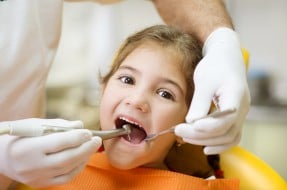Call now on0800 051 8069
Tooth decay in children
-
Why is there an epidemic of tooth decay in children? Is it due to excessive consumption of fizzy drinks? Or to poor dental care and advice?
A recent article in the press reported that dentists are reporting an epidemic of damage to childrens’ teeth as a result of the acid in fizzy drinks. Almost two thirds of the nation’s 4-18 year-olds have tooth damage, according to the article, while one in five children is drinking nearly ten cans of fizzy drinks a week. However, might there also be some culpability within the dental profession?
Let’s get “fizzical”
I recently read an article in the Daily Mail reporting that dental experts are demanding changes to the recipes of fizzy drinks to stem the “increasing prevalence of tooth erosion” among children and teenagers over the last decade or so. An article in the British Dental Journal has suggested that fizzy drinks can be successfully modified by adding ingredients which reduce the acidic action of fizzy drinks upon teeth; however it seems that few manufacturers of fizzy drinks have utilised these ingredients.
As a father myself I am well aware of the amount of fizzy drinks which can regularly pass through the mouths of children and teenagers, and agree that children, parents and manufacturers of fizzy drinks all need to assume some responsibility here. But it is interesting to ask about the level of oral hygiene advice being given to children and their parents by general dental practitioners. Is that advice widely given, and is it sufficiently detailed?
Failure to diagnose tooth decay
The Dental Negligence Team recently acted for a five-year-old girl who developed significant decay in her deciduous (baby) teeth. Expert evidence from an independent dentist was to the effect that the treating dentist had failed to diagnose and treat the decay, resulting in the loss of a number of deciduous teeth. It was also alleged that there was a failure to provide adequate oral hygiene advice to the child’s parents. Negligence was admitted on the part of the treating dentist and the claim has now settled.
Of course it is unusual to see extensive tooth decay in such a young child, but perhaps not as unusual as it once was. The results of losing teeth at such a young age can be very serious, including misalignments of the permanent teeth, and the need for future major orthodontic work. Clearly there is a duty not only among the parents of young children, and among the manufacturers of fizzy drinks, but also in the dental profession itself, to remain vigilant to the possibility of significant decay developing in young children, and to give out thorough and regular oral hygiene advice to parents and children alike.
Summary
If you are concerned that you or your child may have received negligent dental treatment, either in connection with the development and treatment of tooth decay in a child or in some other way, please contact a member of the Dental Negligence Team, who will be happy to advise you on your particular circumstances.







